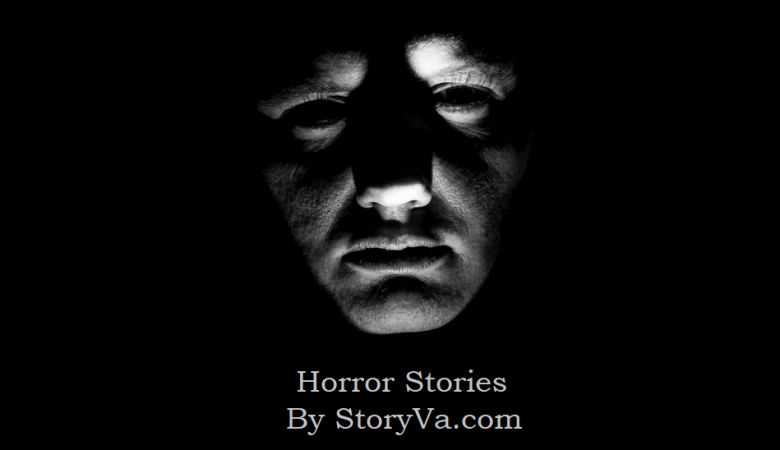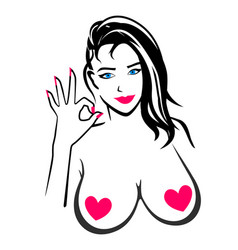[ad_1]
John Anderson was the sort of man who scoffed at ghost stories. His mother warned against aberrations of reason; a nun’s ruler came down–thwack— on any ghoul, goblin, or horned little devil. Slapped on the bumper of his car were two stickers: bubble-font exhortations to the wayfaring driver to “believe in science,” and to “coexist.” John, now an adult, taught about carbon, hydrogen, and chemical bonds at the University. Proclaimed at bars and dinners alike were his airtight logics shedding light on the supernatural; an oasis of reason was he, in a desert of fools.
Forming a habit of these debates, John found himself one day sitting beside a young man who “tested his chops,” as he phrased it years later. The boy had an angular, Roman face and dark olive skin. He bared a perplexing aspect about him, as if hearing a joke silent to the rest of the world. He succeeded all of John’s questions with more questions.
The pair discussed love, far as John could remember. In fact, when John reached for memories, only two things were clear: a segment of dialogue and a delusion. To his youthful interlocutor, John contended that love was only a subjective experience. The youth paused, quirked an eyebrow, and looked both solemn and inquisitive.
“But tell me, my new friend, is a consequence of what you just said that when someone says ‘love’ they really mean ‘to feel love’ or ‘to have loving feelings?’”
“Yes, precisely that,”
“And, John, when someone commits an action out of hatred, is that an action we call a ‘hateful’ action?”
“Yes, it is,”
“Then would it stand to say that an action out of love is called a ‘loving’ action,”
“Of course, the human brain responds to certain stimuli by modulating behavior. It is a simple cause and effect, an evolutionary guide.”
“I am beholding a marvel, truly. I cannot contain my curiosity, John. Do tell me this: if it is the case that love is an emotion, is an action loving only insofar as it is accompanied by ‘loving feelings?’”
“Yes, the behavior is affected by the same chemical responses in the brain which creates the feeling, you could say that, yes”
“Then, is love but an illusion?”
John could not remember how he answered. Philosophy–*thwack–*millenia of effort producing only contradiction, conflict, and conundrum; there was no time to waste ogling at unanswerable, lofty questions. The other of John’s remembrances: upon exiting the sauna he waited for his youthful companion. Contortion spread across his face like the shadow of a cloud at the view of an empty, steaming room.
But one evening, a night cursed by overcast, John found himself encumbered by such thoughts. Beneath a lackluster, ghost-grey sunset, John trotted on hurried legs, frustratedly presided over the step count on his watch. His feet protested in groans, but concession now would mean giving at a mere 7,000 steps; this was 3000 short of his goal. Abreast ran through John’s mind horrid images of thirty-four waist pants. Himself he saw spilling over a belt, an aging globular thing. He withdrew from the feeling and was vaguely behooved by his own intellectual integrity. Very awake with discomfort, John was taken with the question: what of his distaste of fatness? Biologically, functionally speaking, in the modern era, in the age of grocery stores and drones delivering packages, mild adipose tissue lent no survival disadvantage; there was no wooly mammoth hunting at Shaw’s. Somewhere in John’s mind unconsciously was pictured a cavernous pit swirling down and down, teeming with fangs and gnashing of teeth; a whirlpool of behemoth outlines shaped like angels, demons, gods, and monsters. In the depths, a spark.
A little paper airplane were his thoughts, twirling and pirouetting around the question. They landed on a tattered mental bin labeled “product of reproductive instinct,”: a concept he understood vaguely as an ancient temple in the tissue of his brain imposing on his life, a life otherwise ruled by scientific reason, a “biological imperative” for sex. John had long since been accustomed to the pinpricks of doubt that it went unnoticed. He continued to walk, more confident now in his understanding.
The dead end of Knotwood Way rounded the corner. Whispered did the edge of the woods a cold voice to the back of John’s neck; it was the voice from the gloomy basement of his childhood home: the voice emitted from a dark, murky place where evil things lurked. Thwack. The analog, neon-red numbers on his wrist transported John from his muffled dread. Ancient temples in the brain would not triumph over a man of reason.
Fear itself sat now as the object of his contemplation; this dreadful feeling of coaxing by a wagged finger, that sharp prickle of the hairs on his neck, to flee from the woods, woods which John knew to be only a conglomerate of vegetative carbon units, into the mouth of his warm, lit home. He awoke to the absurdity, soldiering ahead with a chuckle. These feelings were merely the result of structures in the amygdala, fed by certain stimuli. This ancient temple in the mind induced that familiar flush of blood from the guts, that jittery hijacking of the heart, and the dilating of pupils; pupils under some caveman’s protruding brow eons ago in a forest filled by long dead behemoths. Amidst the dark and dense beasties was not he. Dr. John Anderson was wearing a Fitbit in the woods of upstate Oregon, a place colonized, primordial no longer. His fears were subjective illusions, cut, nay guillotined by the wise man from reality, acting as a guardrail to the fool.
What then should be feared? There was nothing supernatural, nothing mysterious, no red faces with horns. Nothing over which to tremble like a whipped dog. It is only a defense, nay a benevolent lie the mind besets among the oaks, rivers, the shaded places. John muttered “a running calculation of behavioral adjustment.” Better still: a “propaganda for the continuation of genetic material.” John stuffed the phrase into his pocket. As unreason fears, so was it unreasonable to fear. He heard a rustle of leaves, testing his new conviction.
Momentarily, it was terribly, clearly, truly a hockey-masked villain. John laughed at the notion, fixing squarely his head forward. Freddy and Jason were seldom attendants among the redwoods. Blessed be the man who sees through the aberrations of an animal mind. Oh amygdala, you never do give it a rest!
He thought about such fantasies; the taunting swirls of blood splatter ejected from the necks of love-making teens. It brought pain itself, pain as such, into his thoughts. What is pain?
Obscuring clouds parted with light. If he was fashioned into a bloody rag doll by a starving grizzly, or made to be the goading rabbit to a pack of homeless lunatics, his reason still stood true. The pain present in such experiences are electrostatics in his neurons, traffic on a little highway of potassium and sodium. Pain is a facade. Illuminates the brain that which could not before be attended by reason with the pangs of fear and pain; chemical safeguards, the “desperate anthropomorphized lashings of an animal brain within an indifferent cosmos.” Be it a daunting task one should not fear even the most frantic chemistry. To be crushed, stabbed, pummeled, eviscerated or utterly destroyed would only be to move from one chemical configuration to another. All things again are works of chemistry; atoms dancing to the tune of the universe. John congratulated himself for his cleverness on this subject; he would tell this to Barbara Price, one of the humanities professors, at the next staff dinner.
John, however, would not attend the next staff dinner. For hundreds of feet, silently three wolves crept behind him. Black, ambulating serpents they were, oiled across the path behind John; calm yet frenzied sons of an ancient and hungry god. Deciding on their meal, the children of Fenrir devoured the distance to John. Then John bore witness to a childhood memory, appearing like a smokestack on the horizon. It was the sort of thought he often relinquished: a memory of his cousin who years ago shook his head outside the gates of an abandoned church, refusing to break-in, in the grips of blind, pagan superstition. In the last moments of his life, John attained a picture worthy of fear. If he did not attain his enlightenment, he too would be struck by such terrible and slavish ignorance!
[ad_2]



